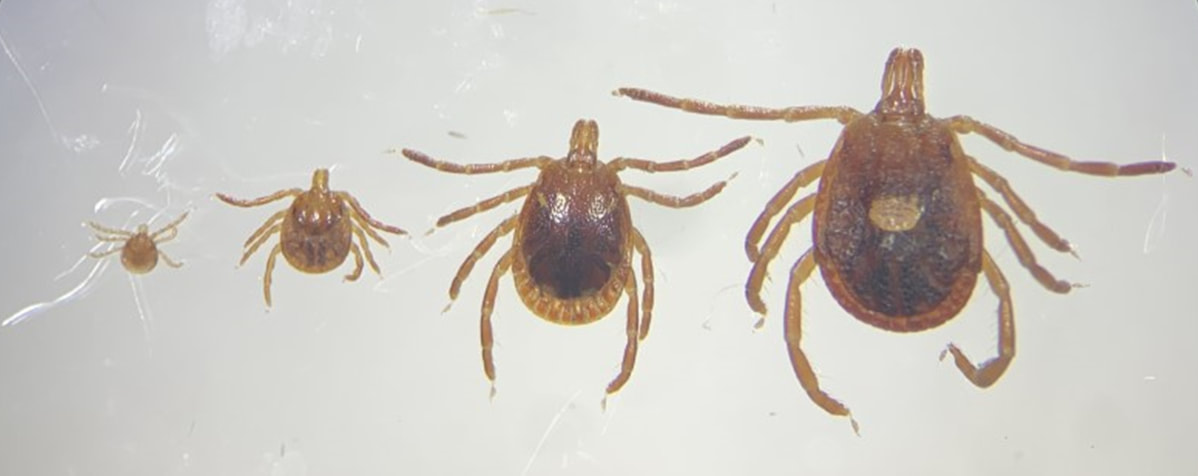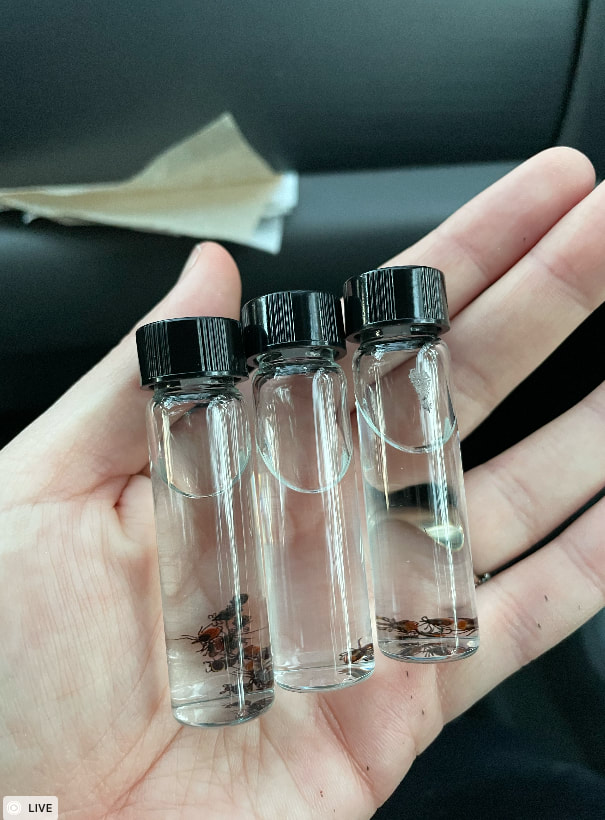|
How does a tick bite make you allergic to red meat? Can you prevent this from happening? One entomologist wants to prepare you with information to protect yourself and the ones you love from ticks.
One of the most important—and unique—aspects of this disease is that the allergy has been linked to the bite of certain hard ticks species. (Ticks are often grouped as hard or soft based on their body type- and no, it has nothing to do with how much time they spend at the gym.) A large majority of patients diagnosed with AGS have a history of tick bites, or these people have elevated antibodies in their bloodstream associated with the alpha-gal sugar following tick bites. Two tick species have been strongly implicated in causing this allergy in the US—both commonly found biting humans. The picture above depicts the most common tick associated with AGS (and one of the most aggressive human-biting ticks in the southeastern US!): the Lone Star tick, Amblyomma americanum. Currently, scientists believe that the ticks’ saliva contains alpha-gal antigens, which are little molecules that cause our bodies to have a reaction. Thus, after a human is bitten by the tick and develops the reaction, their immune system is ready to combat a future attack. Unfortunately, if this person eats red meat at a later time—which contains alpha-gal—their body might mistake the alpha-gal from the meat with the alpha-gal from the tick bite. The mistaken identity might lead to an allergic reaction, which likely increases in severity the more times this person eats red meat. Additionally, alpha-gal sugar is not only present in red meat but also in certain products or foods made from mammals (examples: some dairy products or gelatin), meaning these products might also trigger the allergy. While the medical community is understanding how to handle this new allergy in patients, medical entomologists are stressing how important preventing the allergy is in the first place. One of the best prevention methods is preventing tick bites all together and being vigilant about tick bites when exposed. For those people who enjoy being in the great outdoors (of course where all the ticks are), utilizing EPA registered on-skin repellents containing DEET are a great defense. Additionally, clothing containing permethrin can also keep ticks off of you. If tick habitat is completely unavoidable (for those who backpack, hunt, or even have animals that may bring in ticks), completing a “tick check” as soon as you are able to after leaving the environment is recommended. By checking all of your clothing, shoes, gear, etc. for ticks carefully, you lessen the likelihood of bringing any into your home. Once you are inside, check your entire body for ticks, especially in places where your clothing was tighter on your body (think: back of your knees, between the legs, ankles, armpits, around your waist, etc.). Lastly, if you do find a tick on your body biting you, remove it as soon as possible. The Centers for Disease Control and Prevention has an excellent removal infographic. Although not the first human allergy associated with arthropods (think: honeybees, ants, or wasps), AGS is one of the only ones that is (1) caused by the bite (instead of a sting) of an arthropod resulting in (2) an allergy to a food we eat. Because AGS is relatively new to the medical community, there is still a lot we do not know about how the allergy works.
0 Comments
Leave a Reply. |
Bug Lessons BlogWelcome science communicators and bug nerds!
Interested in being a guest blogger?
Archives
November 2023
Categories
All
|


